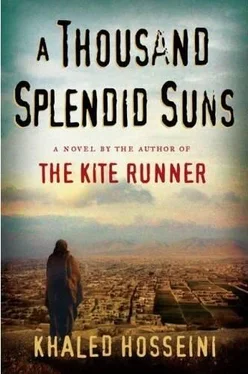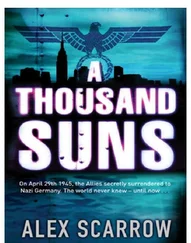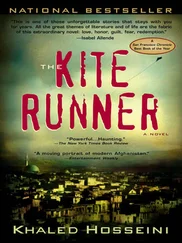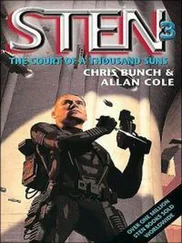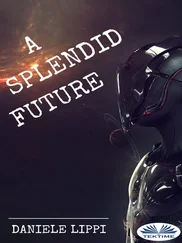To Jalil and his wives, I was a pokeroot. A mugwort. You too. And you weren't even born yet."
"What's a mugwort?" Mariam asked
"A weed," Nana said. "Something you rip out and toss aside."
Mariam frowned internally. Jalil didn't treat her as a weed. He never had. But Mariam thought it wise to suppress this protest.
"Unlike weeds, I had to be replanted, you see, given food and water. On account of you. That was the deal Jalil made with his family."
Nana said she had refused to live in Herat.
"For what? To watch him drive his kinchini wives around town all day?"
She said she wouldn't live in her father's empty house either, in the village of Gul Daman, which sat on a steep hill two kilometers north of Herat. She said she wanted to live somewhere removed, detached, where neighbors wouldn't stare at her belly, point at her, snicker, or, worse yet, assault her with insincere kindnesses.
"And, believe me," Nana said, "it was a relief to your father having me out of sight. It suited him just fine."
It was Muhsin, Jalil's eldest son by his first wife, Khadija, who suggested the clearing – it was on the outskirts of Gul Daman. To get to it, one took a rutted, uphill dirt track that branched off the main road between Herat and Gul Daman. The track was flanked on either side by knee-high grass and speckles of white and bright yellow flowers. The track snaked uphill and led to a flat field where poplars and cottonwoods soared and wild bushes grew in clusters. From up there, one could make out the tips of the rusted blades of Gul Daman's windmill, on the left, and, on the right, all of Herat spread below. The path ended perpendicular to a wide, trout-filled stream, which rolled down from the Safid-koh mountains surrounding Gul Daman. Two hundred yards upstream, toward the mountains, there was a circular grove of weeping willow trees. In the center, in the shade of the willows, was the clearing.
Jalil went there to have a look. When he came back, Nana said, he sounded like a warden bragging about the clean walls and shiny floors of his prison.
"And so, your father built us this rathole."
NANA HAD ALMOST married once, when she was fifteen. The suitor had been a boy from Shindand, a young parakeet seller. Mariam knew the story from Nana herself, and, though Nana dismissed the episode, Mariam could tell by the wistful light in her eyes that she had been happy. Perhaps for the only time in her life, during those days leading up to her wedding, Nana had been genuinely happy.
As Nana told the story, Mariam sat on her lap and pictured her mother being fitted for a wedding dress. She imagined her on horseback, smiling shyly behind a veiled green gown, her palms painted red with henna, her hair parted with silver dust, the braids held together by tree sap. She saw musicians blowing the shahnai flute and banging on dohol drums, street children hooting and giving chase.
Then, a week before the wedding date, a jinn had entered Nana's body. This required no description to Mariam. She had witnessed it enough times with her own eyes: Nana collapsing suddenly, her body tightening, becoming rigid, her eyes rolling back, her arms and legs shaking as if something were throttling her from the inside, the froth at the corners of her mouth, white, sometimes pink with blood. Then the drowsiness, the frightening disorientation, the incoherent mumbling.
When the news reached Shindand, the parakeet seller's family called off the wedding.
"They got spooked" was how Nana put it.
The wedding dress was stashed away. After that, there were no more suitors.
IN THE CLEARING, Jalil and two of his sons, Farhad and Muhsin, built the small kolba where Mariam would live the first fifteen years of her life. They raised it with sun-dried bricks and plastered it with mud and handfuls of straw. It had two sleeping cots, a wooden table, two straight-backed chairs, a window, and shelves nailed to the walls where Nana placed clay pots and her beloved Chinese tea set. Jalil put in a new cast-iron stove for the winter and stacked logs of chopped wood behind the kolba. He added a tandoor outside for making bread and a chicken coop with a fence around it. He brought a few sheep, built them a feeding trough. He had Farhad and Muhsin dig a deep hole a hundred yards outside the circle of willows and built an outhouse over it.
Jalil could have hired laborers to build the kolba, Nana said, but he didn't.
"His idea of penance."
IN NANA'S ACCOUNT of the day that she gave birth to Mariam, no one came to help. It happened on a damp, overcast day in the spring of 1959, she said, the twenty-sixth year of King Zahir Shah's mostly uneventful forty-year reign. She said that Jalil hadn't bothered to summon a doctor, or even a midwife, even though he knew that the jinn might enter her body and cause her to have one of her fits in the act of delivering. She lay all alone on the kolba's floor, a knife by her side, sweat drenching her body.
"When the pain got bad, I'd bite on a pillow and scream into it until I was hoarse. And still no one came to wipe my face or give me a drink of water. And you, Mariam jo, you were in no rush. Almost two days you made me lay on that cold, hard floor. I didn't eat or sleep, all I did was push and pray that you would come out."
"I'm sorry, Nana."
"I cut the cord between us myself. That's why I had a knife."
"I'm sorry."
Nana always gave a slow, burdened smile here, one of lingering recrimination or reluctant forgiveness, Mariam could never tell. It did not occur to young Mariam to ponder the unfairness of apologizing for the manner of her own birth.
By the time it did occur to her, around the time she turned ten, Mariam no longer believed this story of her birth. She believed Jalil's version, that though he'd been away he'd arranged for Nana to be taken to a hospital in Herat where she had been tended to by a doctor. She had lain on a clean, proper bed in a well-lit room. Jalil shook his head with sadness when Mariam told him about the knife.
Mariam also came to doubt that she had made her mother suffer for two full days.
"They told me it was all over within under an hour," Jalil said. "You were a good daughter, Mariam jo. Even in birth you were a good daughter."
"He wasn't even there!" Nana spat. "He was in Takht-e-Safar, horseback riding with his precious friends."
When they informed him that he had a new daughter, Nana said, Jalil had shrugged, kept brushing his horse's mane, and stayed in Takht-e-Safar another two weeks.
"The truth is, he didn't even hold you until you were a month old. And then only to look down once, comment on your longish face, and hand you back to me."
Mariam came to disbelieve this part of the story as well. Yes, Jalil admitted, he had been horseback riding in Takht-e-Safar, but, when they gave him the news, he had not shrugged. He had hopped on the saddle and ridden back to Herat. He had bounced her in his arms, run his thumb over her flaky eyebrows, and hummed a lullaby. Mariam did not picture Jalil saying that her face was long, though it was true that it was long.
Nana said she was the one who'd picked the name Mariam because it had been the name of her mother. Jalil said he chose the name because Mariam, the tuberose, was a lovely flower.
"Your favorite?" Mariam asked.
"Well, one of," he said and smiled.
One of Mariam's earliest memories was the sound of a wheelbarrow's squeaky iron wheels bouncing over rocks. The wheelbarrow came once a month, filled with rice, flour, tea, sugar, cooking oil, soap, toothpaste. It was pushed by two of Mariam's half brothers, usually Muhsin and Ramin, sometimes Ramin and Farhad. Up the dirt track, over rocks and pebbles, around holes and bushes, the boys took turns pushing until they reached the stream. There, the wheelbarrow had to be emptied and the items hand-carried across the water. Then the boys would transfer the wheelbarrow across the stream and load it up again. Another two hundred yards of pushing followed, this time through tall, dense grass and around thickets of shrubs. Frogs leaped out of their way. The brothers waved mosquitoes from their sweaty faces.
Читать дальше
